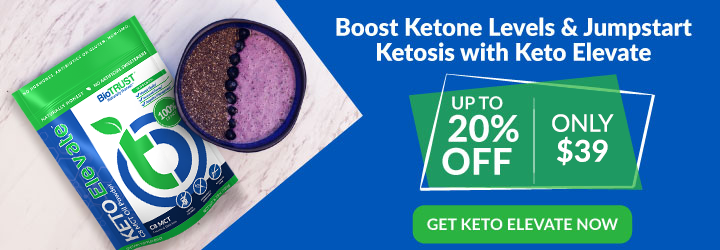See 8 Signs Your Diet Isn’t Working For You

Forget fad diets: if you want to successfully lose weight and keep it off, you have to make a lifestyle change. How often have you heard that advice? And it’s true: the biggest part of losing (or maintaining) weight is what you consistently put into your mouth. That is, your diet.
The word diet makes many people think of restriction and deprivation. This is understandable as one of its meanings is “a regimen of eating and drinking sparingly to reduce one’s weight.” However, diet also just means “food and drink regularly provided or consumed” or “habitual nourishment.” So, if your past diet has led to weight gain, sluggish energy levels, and increased risk of certain diseases, it’s time to change it.
That’s where many people find themselves in the “diet” section of the bookstore or searching the internet, looking for guidelines to help them drop some LBs, increase energy levels, improve health stats, and finally “change for good” or, at least, the next big event (wedding, class reunion, vacation, etc.). Sound familiar? If so, you’re likely even more familiar with trying multiple weight-loss programs with varying levels of success. Some really do work and help many people lose fat and improve health, including:
Others can lead to quick weight loss but are so restrictive that they leave out key nutrients and can be impossible to follow long-term. Or, they’re designed only for rapid weight loss (like the grapefruit or cabbage soup diet, detox diets, or the cookie diet) and typically lead to mostly water and muscle loss, and thus make it harder to lose weight in the future and can lead to unhealthy outcomes.
8 Signs Your Diet Isn’t Working… for You
No matter which diet you choose, it’s important to understand that while many diets do work, not all of them are right for everybody all the time. A diet that works for you not only helps you maintain a healthy weight and improve your health stats, it also makes you feel good, provides plenty of energy, and nourishes your body.
Fortunately, if a diet isn’t working, there are signs. Here are the top 8 to watch for:
1. You’re Not Making Progress
While some folks see results right away, it can take a few weeks or even a month for others to notice a change. And plateaus happen to everyone. But if you’re looking at more than just your scale weight, working hard, and nothing seems to be changing, then you will understandably get frustrated.
In fact, if you find the scale is stuck and your jeans aren’t even a little easier to get on, then you can start to feel defeated and give up on the diet before it has a chance to work. One study, for instance, found that overweight women who lost a larger amount of weight quickly were more successful at keeping those LBs off long-term because they were more likely to stick to the diet. These weren’t ridiculous amounts of weight either (e.g., Biggest Loser style), but noticeable enough to be motivating (~1 to 2 pounds per week).
That said, relying on the scale can be problematic—especially if you’ve added exercise to the program, as you could be putting on muscle mass while losing fat (which is exactly what you want). Other non-scale victories to help track your progress include:
- Body-composition changes
- Dropping measurements
- Greater or more consistent energy levels
- Blood work improvements
- Improved insulin sensitivity (less blood sugar fluctuations)
- Clothes fit more comfortably
- Photos
- Increased walking, running, or cycling speed or distance
- Increased weights or volume in the gym
- Feeling more positive and confident
- Having more fun making healthy choices (it’s just easier to stay on track).
If, however, you aren’t seeing any improvements in several weeks, it’s time to evaluate your diet or adjust your habits. For example, are you following your healthy diet during the week and then having a free-for-all on the weekends (or vice versa)? Are you working out intensely but indulging in too many unhealthy snacks? Take a look at your overall consistent patterns and you’ll find areas where you can make (often small) changes to start making progress again. Or change up your diet completely to find one that works better for you, your metabolism, and your lifestyle.
2. You’re Hungry (or even Hangry)
If you are following a crazy fad diet or just restricting calories too low, you’re bound to feel hungry. This can not only lead to overeating (and potentially damaging your relationship with food), but it could cause your body to break down muscle as it seeks fuel for energy.
It’s good to be hungry before meals. And when you first change your diet, you may find that it takes a bit of time to learn to listen to and understand your hunger cues. But you shouldn’t feel so ravenous or hungry you’re angry (i.e., hangry). And, in this case, you’ll get better results by eating more, not less.
To better help manage hunger levels, fill up on more fiber-rich healthy whole foods like vegetables and fruits. Enjoy more protein at each meal. And don’t forget to include healthy fats, which can help you feel more satiated for longer after eating.
3. You Don’t Feel Good
Energy levels so low you can barely function? Feel almost like you have the flu? Does your hair look and feel “crispy”? These are all signs that your diet is most definitely not working for you. This could be because you’re lacking key nutrients, excluding important food groups, or not consuming enough calories or carbohydrates for your activity levels. In other words, you simply aren’t following the right diet for you.
For example, some people respond very well to the keto diet. They enjoy elevated energy, improved mental clarity, and “easy” body fat and weight loss. Plus, they don’t experience food cravings. Others, sadly, feel lethargic and never seem to get over the “keto flu.” Or they never stop craving carbs and find it hard to feel satiated after meals. If this is your experience, it’s okay to realize this isn’t the right diet for you, and you may better thrive on a different type of diet that provides more variety.
If you feel cranky and your energy levels go into the dump when you skip breakfast or dinner, then Intermittent Fasting may not be right for you (or, you may be going too far, too fast when determining your eating window). Even if your best friend loves Intermittent Fasting and saw amazing results, that doesn’t mean you will too. Remember, everybody is different.
4. Increased Indigestion
Speaking of not feeling good, if you find your body is struggling to digest food, you’re bloated, have heartburn, or your poop is “special,” then that’s an indication the diet isn’t right for you.
Admittedly, if you haven’t been eating a lot of fiber, and you start eating significantly more plant foods, your gut may need a minute to catch up to be able to properly digest the new additions. (That’s why it’s always recommended you work your way up to eating more high-fiber foods.) But if you continue feeling uncomfortable after eating or have runny or rock-solid poops, it’s time to make some adjustments, if not change course completely.
5. You Have to Give Up Your Favorite Healthy Foods
Admittedly, if we want to eat healthfully, we have to make healthier choices. Perhaps it’s cutting out the afternoon soda habit, saying no to a pint of ice cream at the end of a stressful week, or just cutting back on ultra-processed foods to eat more whole foods. But many diets restrict or eliminate even healthy foods.
For instance, if you aren’t gluten sensitive and you love bread, then you can find a diet that allows bread (though it may ease you into higher fiber options). If you love ice cream but the diet says no to any dairy, you can find a diet that occasionally allows ice cream or scratches that itch with creamy ice cream alternatives or milk-shake-like smoothies.
Depriving yourself may work for a minute, but you’ll likely soon give in and give up and find that you’re back to “eating normally” and undoing any of the results you worked so hard for. Fortunately, there are many healthy tips and recipes that can cut the calories and increase the nutrient levels in almost any favorite food. And Coach Cristina provides a new recipe nearly every week! (Seriously, she’s lightened up everything from Girl Scout cookies to grandma’s fried chicken to Mexican Pizza that’s better than the original.)
It’s also important to ask why you’re craving certain foods. For example, if you really want something that’s sweet, it may be because you are used to eating it and your tastes haven’t caught up with your new diet. But it could also mean you aren’t eating enough calories and your body is urging you to eat more.
On the other hand, if you’re craving, say, fried chicken, it could be time to look up one of Coach Cristina’s baked alternatives. Or, it could be because you aren’t staying satiated between meals because you aren’t eating enough protein or fat.
Some diets take it a step further and even restrict foods like citrus and nightshades (e.g., tomatoes, eggplants). If you’re following a short-term elimination diet to determine if you have allergies, that’s reasonable. However, if these types of foods are off plan for the long term, you may find yourself craving, for example, oranges or grapefruit because your body is low in antioxidants like vitamin C or other vital nutrients.
Become curious about why your body wants certain foods. Is it because you’re feeling stressed? Or, could it be because you need more variety? Understanding the why can help you better honor your hunger and provide your body with the foods it really needs.
LIMITED TIME OFFER: Get Ageless Turmeric, Our Highly-Bioavailable Turmeric & Ginger Supplement, As Low As $14
6. You Hate It
There are people who love counting calories and macros—measuring what they eat, opening a calorie tracker throughout the day, and feeling like they have greater control and understanding of what they put into their bodies. They’re also likely to lose fat quickly while getting a wide range of nutrients.
Tracking food can provide greater control over their body, their health, and their choices. And some people love the simplicity and flexibility. For example, if you want to eat a piece of cake, as long as it fits in your calorie count, you’re good. So, if you’re one of those people, track away!
Other people find it difficult—or impossible—to track every calorie or gram of protein, carbs, and fat. They find the apps annoying and the “controls” limiting, painful even. Or they start feeling obsessed, counting every bite, every step, and every nutrient, which leaves them limited time to focus on anything else. (For certain people, it can even turn into an eating disorder known as “orthorexia,” which is an unhealthy obsession for eating only healthy foods.)
Tracking calories helps some people enjoy greater freedom and flexibility. Others find that even counting macros takes all the fun out of eating and leads to an unhealthy relationship with food.
If tracking calories, macros, or nutrients feels good, then it’s the right diet for you. If it adds stress, frustration, and unnecessary complication, then it’s not the right diet for you, at least right now. Fortunately, there are many other ways to track portion sizes or improve your nutrition. And some very healthy diets (e.g., Mediterranean, Ayurvedic, and Satiating) don’t rely on calorie or macro counting at all.
7. Your Skin Changes (Not For The Better)
With a healthier diet that includes staying well-hydrated, you’ll likely notice your skin looks clearer and smoother. If, on the other hand, you notice increased breakouts or start noticing your skin is dry and cracks or cuts more easily, then food could be the cause. For example, skin can break out (e.g., pimples) with high-fat diets, especially if you aren’t getting enough veggies and fruits. On the other hand, if you aren’t getting enough water or fat, the skin can dry out and look and feel thinner and more fragile.
No matter which diet you follow, ensure you’re getting enough water and eating foods that are rich in water to stay hydrated. And watch your skin closely to see if you notice improvements in texture, clarity, color, and moisture levels, or the opposite.
8. It Doesn’t Fit Your Lifestyle
You already have a life, a job, a family, and preferences. If you start a diet that is completely contrary to that life, even if it’s a good diet, it ultimately won’t work for you. For example, if you go out for burgers with your brother every week, then a vegan plan will be challenging. (Perhaps consider Flexitarian instead?) If you travel for work and are rarely home, then one that focuses heavily on home cooking can feel nearly impossible. (Try discovering new ways to eat whole foods instead of ultra-processed, packaged options when on the road.) If tracking calories drives you mad, try using this “handy” way to manage portion sizes.
No matter how well a diet works for a co-worker, friend, influencer, or famous celebrity, it might not be right for your lifestyle. For a diet to work for you, it needs to fit into your life and be sustainable for the long haul rather than merely the next few weeks (or days).
Following a Healthy Diet for Life
Remember, a diet is just how you nourish your body. And even an effective diet won’t necessarily work well for everyone forever. If your diet leaves you feeling rundown, is too difficult to follow, or isn’t giving you the results you’re looking for, it’s time to change things up and find a diet that works for you! That is, a diet that’s healthy and leads to long-term results, not just temporary changes. And one that helps you feel great and not one you dread.





 7 Signs Your Body is Seriously Low on Collagen (not just wrinkles)
7 Signs Your Body is Seriously Low on Collagen (not just wrinkles) Health Expert: "Turmeric Doesn't Work (unless...)"
Health Expert: "Turmeric Doesn't Work (unless...)" 3 Warning Signs Your Probiotic Supplement is a Total Waste
3 Warning Signs Your Probiotic Supplement is a Total Waste

